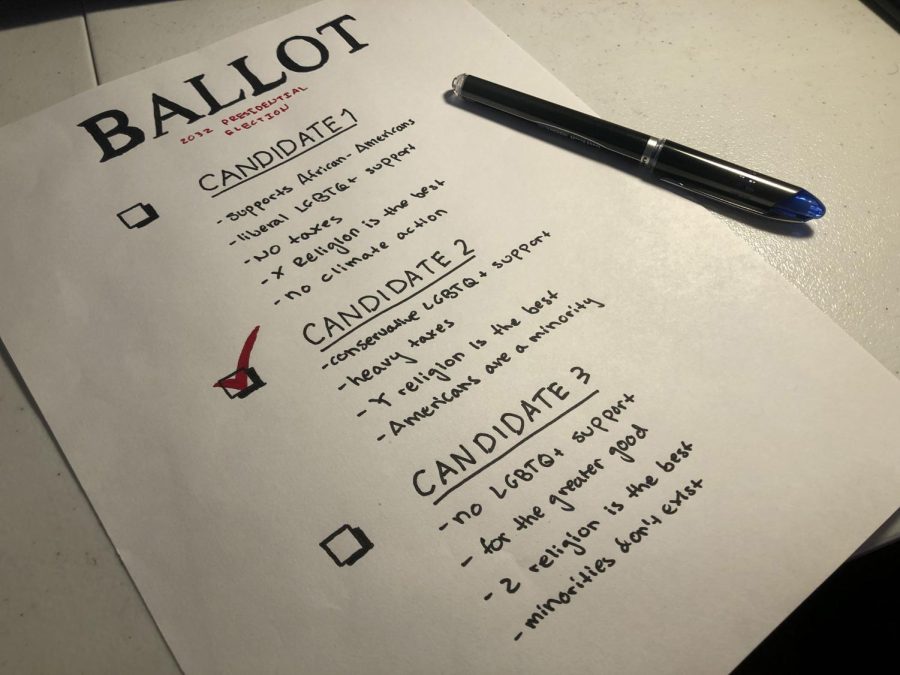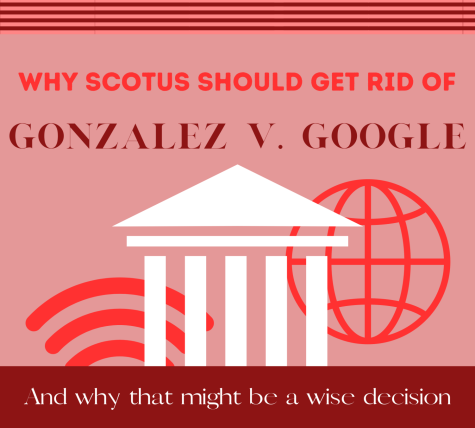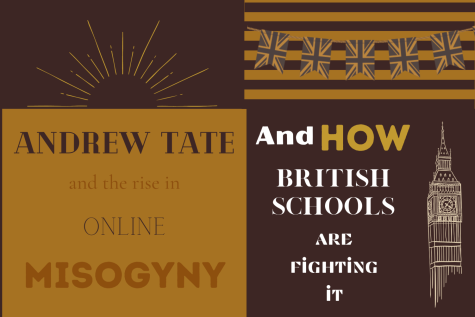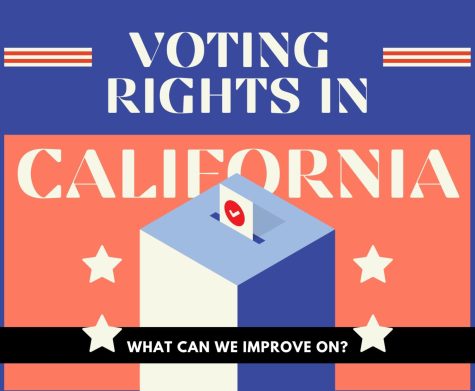Identity politics today: why it does not represent Americans
Identity politics, in any country, impacts the partisan viewing, and polarization of the citizens.
March 21, 2022
What is identity politics?
Identity politics is politics that derails from the traditional party systems in exchange for people to form exclusive groups based on culture, religion, identity, or other factors.
It has a detrimental effect on American politics: it only leads to increased polarization and radicalization towards both ends of the spectrum and fails to acknowledge that Americans are more than their differences.
In order to understand what identity politics is, the definition of it must be clearly established. The term first rose to prominence after the 2016 elections, in the race between Donald Trump and Hillary Clinton.
The term has generally two uses: one to signify the types of issues that arise in politics around identity-whether in terms of race or gender. Trans and gay rights, trigger warnings and safe spaces, immigration, and other minority-related issues. This definition of the term poses no clear problem towards society, as they are all very valid and related issues today.
The other definition of “identity politics” has a much darker implication behind it. It means that if a voter is of a certain group, ethnicity, or culture, they will vote for a specific candidate because of that, where skin color trumps the beliefs and political platform that a candidate stands on.
History of identity politics
Throughout American history, identity politics has been used to gain votes. In the late 1800s, the Democratic platform appealed to immigrants from Europe as the Republican party at that time exhibited nativist tendencies.
In addition, politicians have always attempted to appeal to one specific group of voters, farmers for example, by promising legislation that can benefit the group once in office.
During the Obama administration, identity politics have been on the rise again; strategies using race have surfaced in elections – and America becoming more polarized than ever before.
The problem with identity politics
This racial usage of identity politics goes against every fundamental belief of American democracy; that skin color does not matter and that all races and identities are equal.
“I think that there should be no policy which specifically benefits on race, but that the unique concerns of each race should be addressed through an examination of empirical evidence. For example, I do not agree with concepts such as reparations for slavery because no one alive today had owned or were slaves, not all black people in America are descendants of slaves, and not all white people in America are descendants of slaveowners and it would be stupid to try to track down everyone’s ancestry. This policy benefits one race directly over the others. However, I think debates surrounding police brutality and racism in the court should consider and synthesize the viewpoints of the black community,” said Richard Li (‘22).
Identity politics discards the age-old idea of “majority rule, minority rights”, as it splinters, not unifies. The concept that a majority and a minority are able to peacefully compromise is a crucial aspect of the beginnings of democracy.
But identity politics divides politics into strict groups based on their backgrounds, not beliefs. The minority is unable to coexist with the majority until the group continually keeps splintering into different minorities.
Examples of identity politics
This is all incredibly abstract, so how can we see identity politics in action today?
The most obvious example of this is white people choosing only to vote for whites or whites that stand for “white values”. In modern elections, this means anti-immigration candidates who promise laws that benefit white people — at the cost of others, from Latinos to Blacks.
Voters might compromise issues like abortion, gender, climate change, gun control, and economic policies just in order to vote for a candidate that stands for what their “identity” of being white is. This is why the blatant fallacy of “vote for Politician X because they stand for Group X” is so easily abused in political rhetoric. Politician X cannot stand for all members of group X at the same time, and neither should that be the only reason to vote for them.
A brilliant historical example of identity politics sweeping the nation is the election of 1928. The ‘20s were a long period of Republican fiscal conservatism and pro-business policies, with a steadily declining agricultural sector as well as a rising economy that was built on sand.
Republican candidate Herbert Hoover sought to maintain the status quo of economic “prosperity” while Democratic candidate Al Smith sought reform-from the repeal of Prohibition to increased taxes on the rich.
However, Hoover swept the election completely-but not because his policies were superior to Smith’s. Smith was a Catholic, while Hoover was a Protestant. Many refused to vote for Smith based on the sole reason he was a Catholic, and it even broke the decades-long tradition of Southern states voting Democrat in elections.
The economic “prosperity” built on sand collapsed in 1929 with the stock market crash of Black Thursday, triggering the beginning of the Great Depression.
Identity politics is a pitfall that America needs to beware of. Politics should be centered around the ideas and policies that politicians or parties endorse, not their identities.















